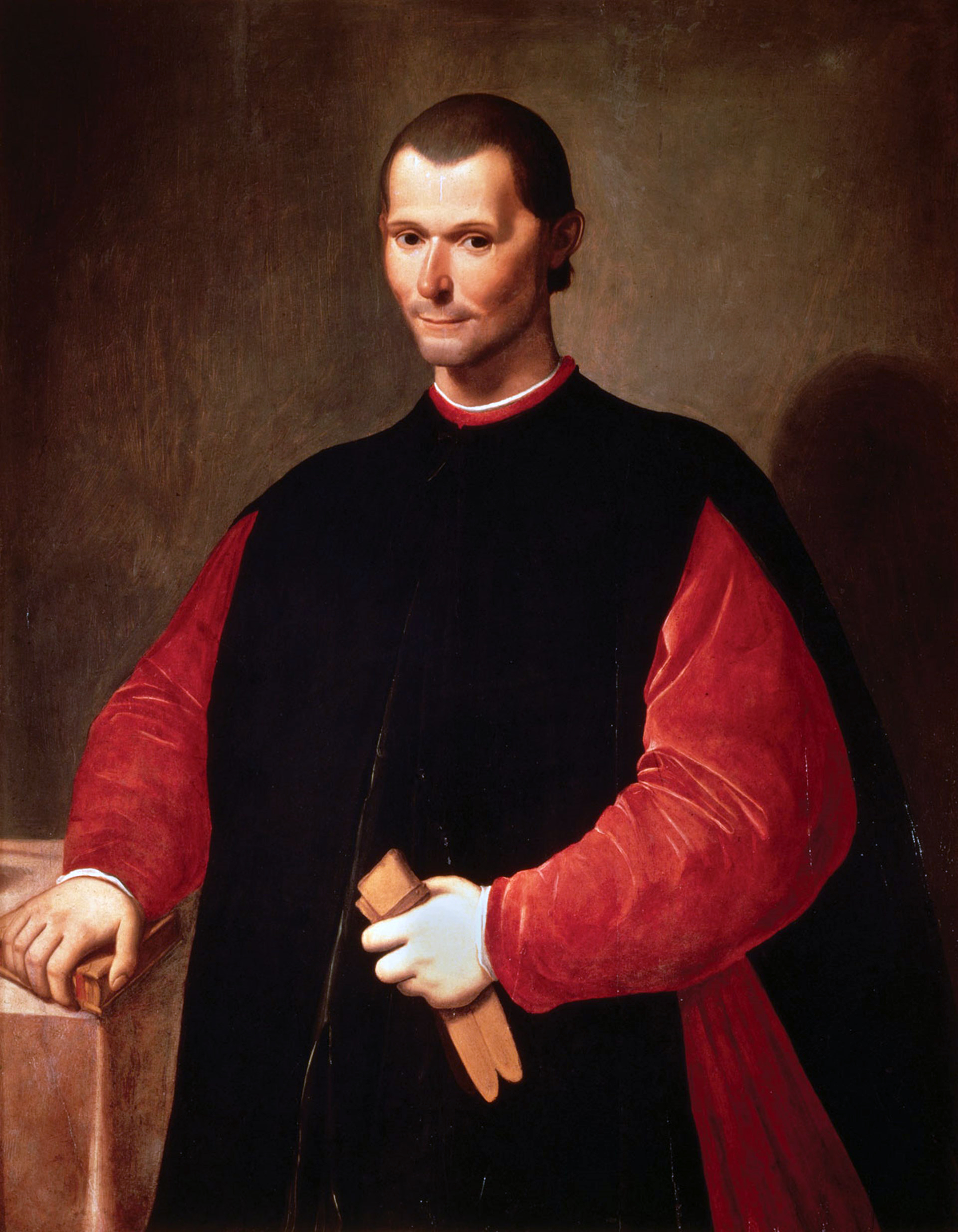Machiavelli, << `mak` ee uh VEHL ee or `mah` kyah VEHL lee, >> Niccolò (1469-1527), was an Italian statesman and writer whom many people consider the father of modern political science. He ranks as one of the most important political thinkers of the Renaissance, a period of great intellectual activity between the 1300’s and the 1600’s. The experience he acquired as a government official and his study of history led him to view politics in a new way. The political writers of the Middle Ages treated politics idealistically, within the framework of religion. But Machiavelli sought to explain politics realistically, based on his view of human nature within the framework of history.
Machiavelli viewed the state as an organism with its ruler as the head and its people as the body. He maintained that a healthy state is unified, orderly, and in balance, and that its people have happiness, honor, strength, and security. But an unhealthy state is disorderly and unbalanced, and may require strong measures to restore it to normal. Machiavelli called for a leader to use any means necessary to preserve the state, resorting to cruelty, deception, and force if nothing else worked. As a result, many people thought he supported the use of cruelty and deceit in politics. The word Machiavellian came to mean cunning and unscrupulous.

Machiavelli explained most of his ideas in The Prince, his best-known book, which was written in 1513 and published in 1532. This book describes the methods by which a strong ruler might gain and keep power. Machiavelli’s other works include Discourses upon the First Ten Books of Livy (1517 or 1518) and The Art of War (1520 or 1521). He also wrote plays and poems.
Machiavelli was born on May 3, 1469, in Florence, Italy. In 1498, he was appointed secretary of the second highest governing body in the Florentine republic. His duties consisted mainly of conducting diplomatic missions. He also organized a militia for the republic. In 1512, the republic collapsed. The Medici family, which had ruled Florence earlier, was then restored to power. Machiavelli was arrested, tortured, and imprisoned on suspicion of plotting against Medici rule, but he was released after less than a year. He died on June 21, 1527.
